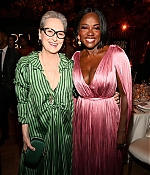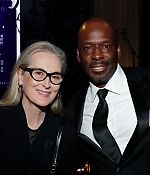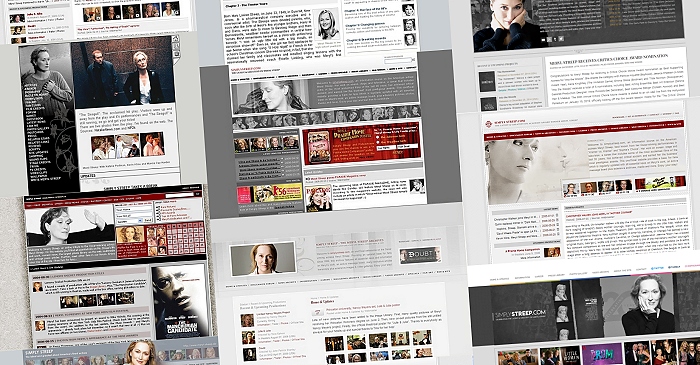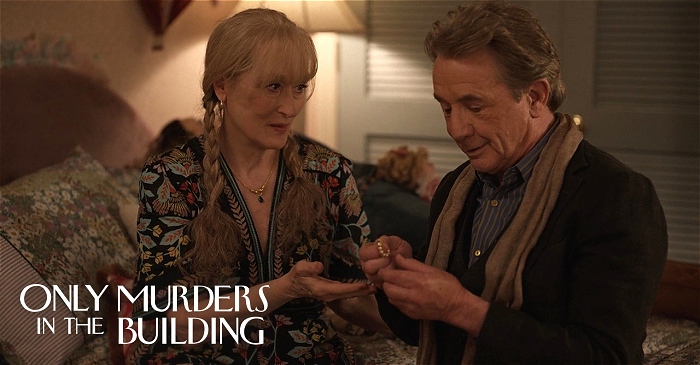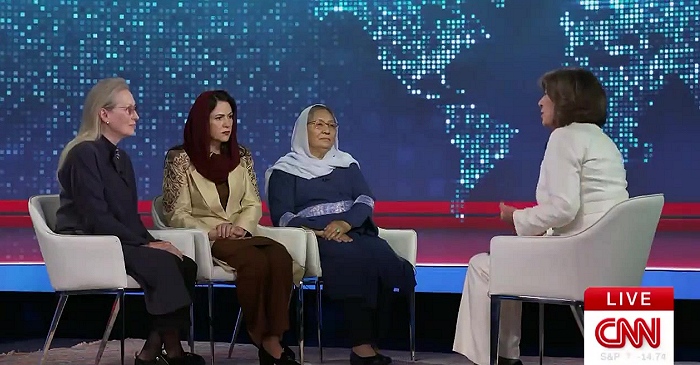
|
Is Meryl Streep Coasting With Roles Like 'Florence Foster Jenkins'?
The Hollywood Reporter ·
August 13, 2016
· Written by Sheri Linden
|
There was a time when the burning question posed by Hollywood movies was not “DC or Marvel?” but “Meryl Streep: yea or nay?” With her Yale and New York theater bona fides, the actress hit the big screen as a preternatural talent and quickly began racking up awards. A 1981 Time cover proclaimed “Meryl Magic.”
But not everyone felt it.
For me, her early, much-lauded work in The French Lieutenant’s Woman and Sophie’s Choice was admirable in a museum-quality way, defined by a clinical precision that was more about performance than character revelation. It wasn’t until Silkwood that the power of her talent struck me. As the real-life title character, Streep seemed liberated, not just from period trappings and accent perfection, but from the capital-A acting that had kept her previous portrayals at a remove.
It’s her regular-girl roles — Defending Your Life, Postcards From the Edge, Adaptation, Dancing at Lughnasa, The Hours, A Prairie Home Companion — that continue to dazzle me, even as I’ve also come to appreciate her peerless knack for inhabiting larger-than-life characters.
At 67, Streep has been on a run of such outsize roles, from the delectable (Julie & Julia) to the imperious (Doubt) to the oxygen-sapping (August: Osage County) — all garnering best actress nominations in her long, storied relationship with Oscar. Even recent cameos, in Suffragette and, to a lesser extent, The Homesman, had a show-stopping grandness about them. Her latest performance, as the delightfully untalented Florence Foster Jenkins in Stephen Frears’ feature of the same name, makes grandiosity its very subject. It’s a perfect example of what’s indispensable about her, and also of what’s frustrating about a number of recent vehicles for her gifts.
Streep’s turn as the tone-deaf dowager is the bittersweet soul of the amiably cartoonish film. Her screeching approximations of light opera are so heartfelt that each deluded trill is a life story in miniature. But around her, the movie does little more than put reactions to her awful singing on a repeat cycle. Is there too much awe around the two grandes dames at the center of the production, Jenkins and Streep? A similar dynamic was at work in her previous lead role, as a singer of a very different stripe in Jonathan Demme’s Ricki and the Flash, a contrived comic drama gathered unpersuasively around a typically commanding performance.
Though the role doesn’t come with the prefab importance of another recent picture showcasing her portrayal of a historical figure, The Iron Lady, in many ways Florence Foster Jenkins feels just as hermetic as the Thatcher biopic. It’s a signed, sealed and delivered tribute that doesn’t want to dig too deep or give much room to character aspects that are unflattering or disturbing. It’s Streep’s dexterity that lets in the shadows and light. There’s something both touching and freeing in watching a performer known for her technical rigor hit the wrong notes with such gusto. Her ability to convey self-importance, vulnerability, yearning and delusion in a single tortured melody is exhilarating. It makes you wish she’d bring that fluency to something in a minor or more intimate key, a story that strips away the bells and whistles.
Of course, Streep’s age and gender cannot be ignored as factors in the kinds of roles that are offered to her in today’s Hollywood. But during the past few years a number of well-known actresses in their 60s and 70s have delved into smaller-scale fare, among them Blythe Danner (I’ll See You in My Dreams), Susan Sarandon (The Meddler), Sally Field (Hello, My Name Is Doris) and Lily Tomlin (Grandma). In plum roles ignored by the Oscars — though not for lack of awards-season trying — they’ve drawn some of the best reviews of their careers. The movies themselves each have their strengths, but are more notable as vehicles for their leading ladies than as top-notch cinema. It will be a good day when we don’t need to congratulate films for placing older women front and center.
The question for Streep may be: Is the no-frills realism of an indie character study even in her thespian DNA? For all her acting prowess, she’s been a full-fledged movie star from the get-go, in the cinematic lineage of Katharine Hepburn and Bette Davis. There are, of course, commercial constraints that come with the territory. But from those glamorous heights she often has played women pushing against expectations and tradition, whether as the “bad mother” in Kramer vs. Kramer — a role that she insisted be rewritten to give her character depth rather than merely demonizing her — or the strong-willed colonist in the lush romance Out of Africa.
In the latter drama her character muses, “Men go off to be tested for courage, and if we’re tested at all, it’s for patience, for doing without.” Streep’s filmography is filled with characters who refuse to play by those rules. She knows how to reveal their struggles even when “going big” in crowd-pleasing mainstream fare, but too-big-to-fail movies don’t usually allow her the space to truly explore. It would be a shame to see her playing nothing but extraordinary figures designed to be treasured (and honored by the Academy). Tough, flawed, fluttery, neurotic — her portraits of everyday people over the past 40 years have been revelatory. It’s a realm she hasn’t begun to exhaust.
Streep told Vanity Fair in 2010 that “as there begins to be less time ahead of you, you want to be exactly who you are.” Like her contemporary Robert De Niro (one of her first screen costars, in The Deer Hunter), she increasingly has been drawn to comic roles, but also to showy ones. So this, it would seem, is exactly who she is: an entertainer playing to the rafters.
In Florence Foster Jenkins, a vocal coach tells Streep’s character, with pointed ambiguity, “There is no one quite like you.” That goes for the woman playing her as well. Who else to give us the earnest Jenkins, the high-spirited Julia Child, the delicious monsters of The Devil Wears Prada and The Manchurian Candidate? Her convention-defying women are riveting. It would be thrilling to see one or two of them defy convention on a smaller scale, in a less glossy setting that just might fly under the Oscar radar. Call it a test of courage — the kind of test she’s passed many times before.


